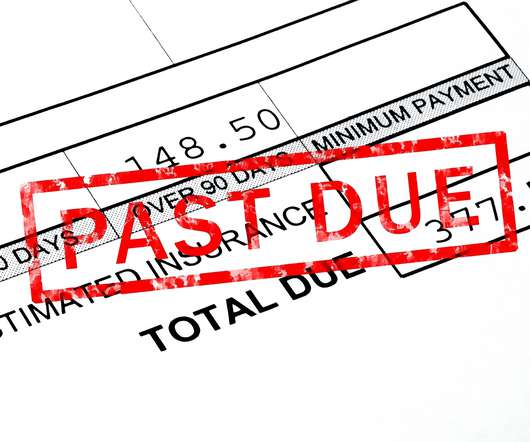Can a Collection Agency Report to the Credit Bureau Without Notifying You?
Credit Corp
NOVEMBER 9, 2020
Debt collection agencies have a long history of harassment and illegal practices. Can a collection agency report to a credit bureau without notifying you? Knowing illegal debt collection practices can help identify when you’re being treated unfairly. The name of the original creditor to whom the debt is owed.

















Let's personalize your content